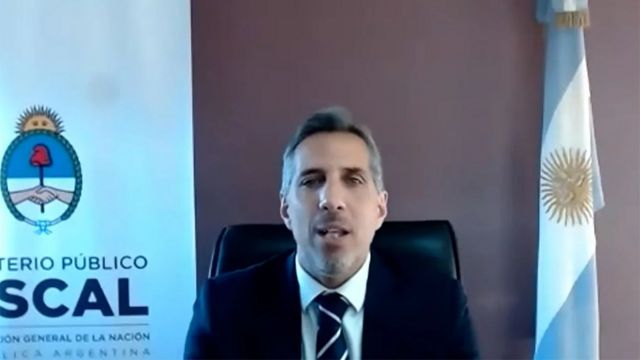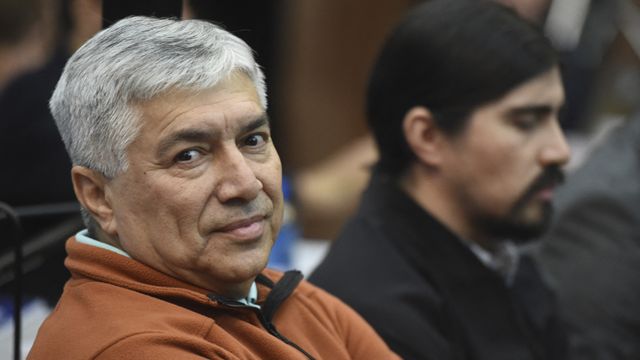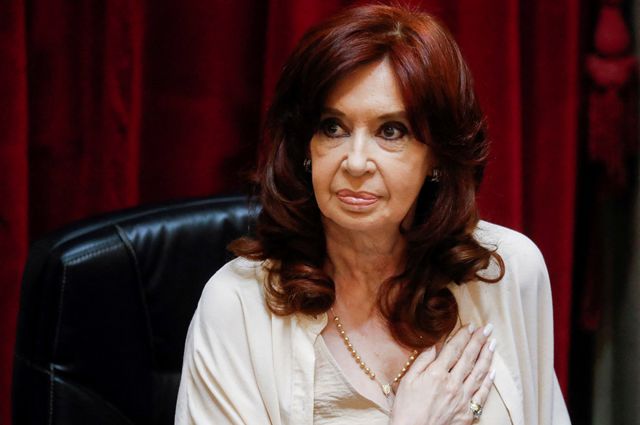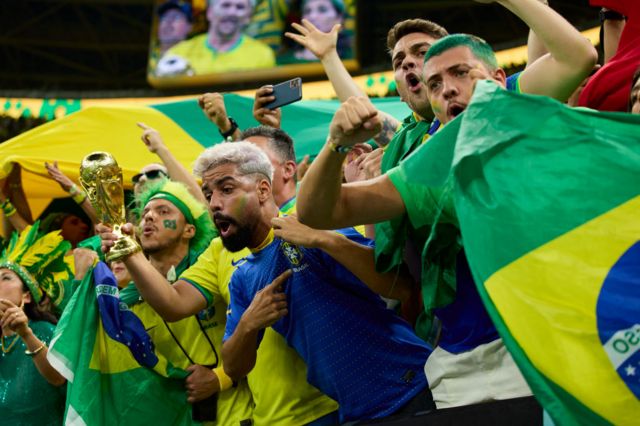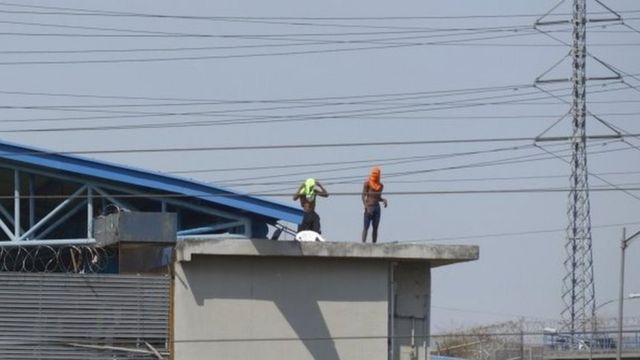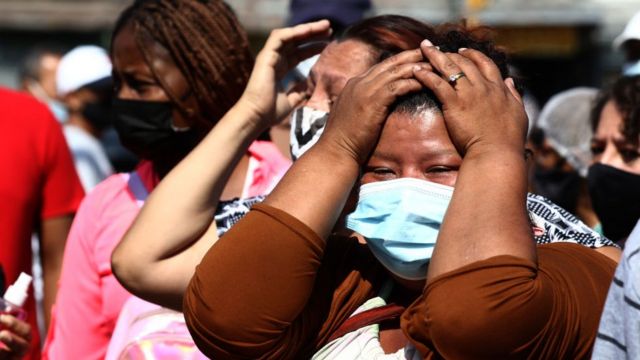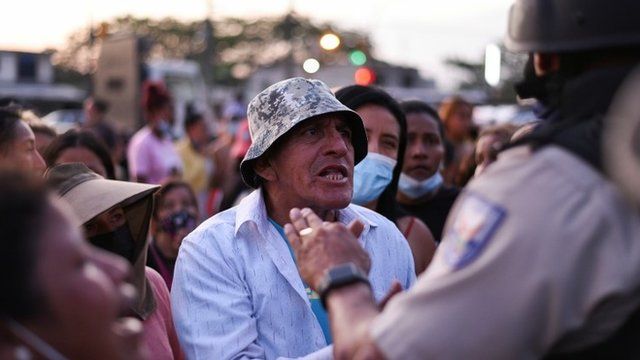Cristina Kirchner: why Argentina's vice president was sentenced to 6 years in prison
Cristina Fernández de Kirchner heard the verdict via videoconference in her office
A criminal court in Argentina sentenced, this Tuesday (06/12), the vice president of the country, Cristina Fernández de Kirchner, to six years in prison for the crime of fraudulent administration during the 12 years that she and her late husband, former president Néstor Kirchner, ruled the country — from 2003 to 2015.
However, the vice president was acquitted of the charge of heading an illegal association.
The sentence disqualifies the former president from holding public office for life.
It is the first time in the country's history that an incumbent vice president has been tried and convicted.
However, the decision does not mean that Kirchner will immediately go to prison, as appeals must take the case to the Chamber of Cassation and the Supreme Court, which could take years.
Kirchner also enjoys privileges that prevent her from being arrested until December 10, 2023, when her term as vice president ends. She could run for a new post in next year's election, which could extend her immunity.
She denies the accusations and claims to be a victim of lawfare , a kind of persecution of political enemies through the courts. In this sense, she has always compared herself to former Brazilian President Luiz Inácio Lula da Silva (PT), who will take over the Planalto on January 1, 2023. Lula spent about a year and a half in prison for a conviction that was later annulled.
The former president was accused and convicted of having favored a partner and ten other Kirchnerist employees in millionaire road works. Check out details about the case below, what Cristina Kirchner's defense says and what should happen to her.
The accusations
Prosecutor Diego Luciani during his closing arguments; he had asked for 12 years in prison for Kirchner
João Fellet tries to understand how Brazilians reached the current degree of division.
episodes
End of Podcast
The former president was convicted of carrying out public works in the Patagonian province of Santa Cruz, which Néstor Kirchner governed for more than a decade before becoming president and where the vice president still resides.
Prosecutors Diego Luciani and Sergio Mola said the Kirchners "installed and maintained within the national and provincial administration of Santa Cruz one of the most extraordinary matrices of corruption that, regrettably and unfortunately, has developed in the country."
The prosecution asserted that, days before Nestor took office, in 2003, the couple created a construction company, Austral Construcciones, to which most of the road works carried out in Santa Cruz were subsequently directed.
According to prosecutors, the Kirchners placed a partner and family friend in charge of the construction company, who acted as a front man: Lázaro Báez, former manager of the Bank of Santa Cruz who, according to the Public Ministry, had no experience in the field of construction.
Báez, who last year was sentenced to 12 years in prison for money laundering, was also convicted in the trial decided on Tuesday, along with eleven other former Kirchner employees. One of them is former Secretary of Public Works José López, who is already detained for other corruption cases. In 2016, he was filmed taking bags full of dollars to a convent.
According to Luciani and Mola, Austral Construcciones was selected in bids to build 51 works — 79% of the works in the province of Santa Cruz during the period in which the Kirchners ruled the country. But only two were completed on time and half were never completed. In addition, the prosecutors stated that the company was favored with millionaire overbillings. , money they asked to be confiscated from the convicts' assets.
Lázaro Báez had already been convicted last year
In their allegations, prosecutors said that irregularities in favor of Báez multiplied in 2007 and 2011, years of national elections — which Kirchnerism won. Luciani and Mola assured that the illicit organization sought to raise funds for the campaigns.
Austral Construcciones ceased operations in December 2015, when Cristina Kirchner stepped down. For prosecutors, this demonstrates that there was a link between Lázaro Báez's construction company and the Kirchners.
What does Cristina Kirchner say?
The main argument of Cristina Kirchner's defense is that the Public Prosecutor's Office did not produce any evidence — no document or message — that would directly and personally show the former president's link with the concession of works to Lázaro Báez.
"Between the Presidency of the Nation and the denounced works, there are twelve administrative instances of a national and provincial nature", explained the vice president in her Twitter account, where she refuted many of the arguments presented by the prosecutors.
The defense also argued that the courts are not competent to judge how a democratically elected government distributes public investment.
Kirchner stated that a head of state cannot be held responsible for the way public tenders are conducted.
"Who executes the budget is the chief of staff, not the president or the president of the nation", said the current vice-president, adding that Congress approved the investments in the works when sanctioning the budget law, including with some votes from allies of the former president Mauricio Macri.
"The investment in public road works in Santa Cruz was strongly justified by the deficit shown by its road network in 2003". Cristina Kirchner also defended that the 51 works in question had already been investigated by the Justice of the province, which found no signs of corruption.
What happens now
The Oral Court formed by Giménez Uriburu, Jorge Gorini and Andrés Basso will announce the arguments of its sentence on March 9, 2023, after the summer judicial recess.
On that occasion, the vice-president's lawyers may appeal the decision to the Chamber of Cassation.
If this instance ratifies the sentence, the defense can still appeal to the Supreme Court.
The current vice president of Argentina said that the Justice of Santa Cruz has already judged cases accused of corruption
Meanwhile, Cristina Kirchner will be free and will be able to run in the general elections of October 2023.
If her sentence is upheld after appeals and she is currently holding a position in the Executive or Legislature, in order to go to prison, she must first be removed through a political process.
If that happens, Kirchner may eventually serve time under house arrest, as next February she will turn 70 — the age from which the benefit can be claimed.
In addition to the Vialidad case, the first to go to trial, the former president is also being prosecuted in another major case, known as the "corruption notebooks". In it, Cristina Kirchner is accused of receiving bribes from businessmen in public works.
The case was brought to trial in 2019, but the process – in which former employees and several businessmen are also accused, including a cousin of Mauricio Macri – does not yet have a date to start.

